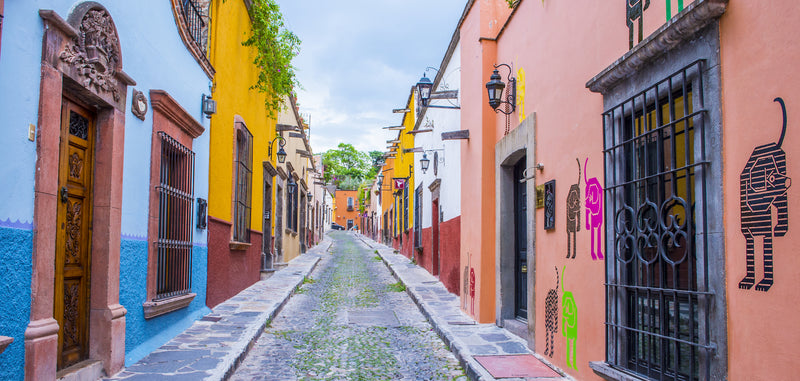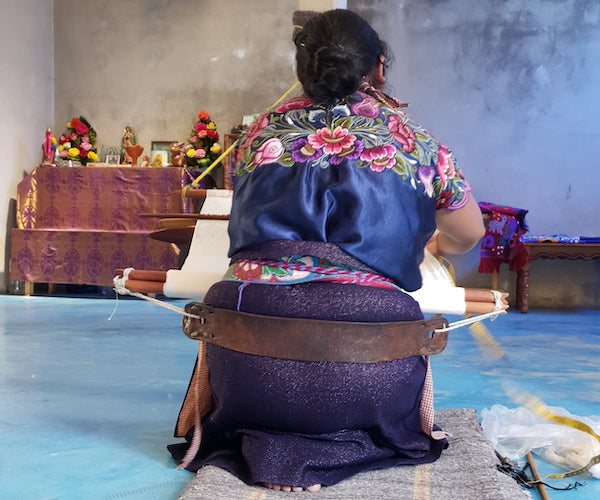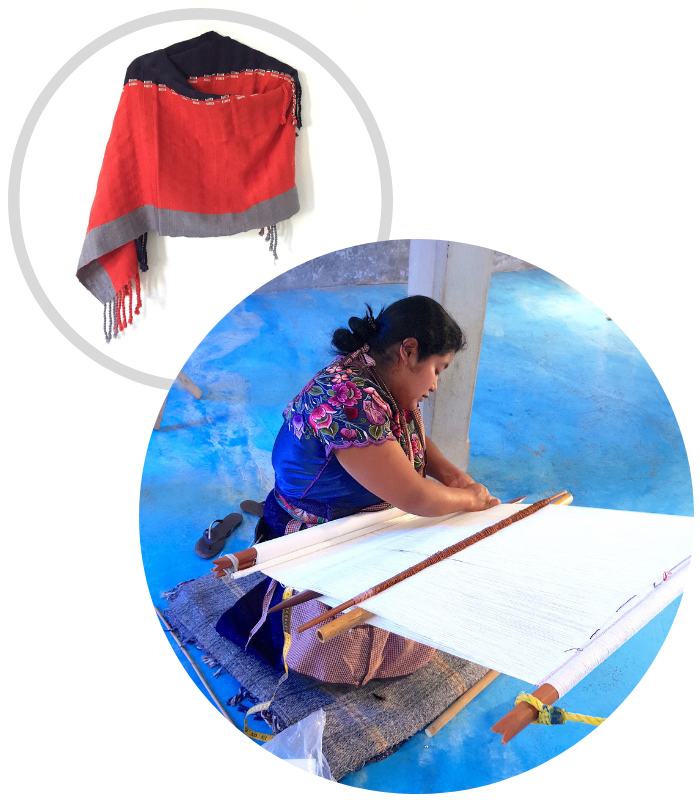Meet Petrona: The Textile Artisan with Machine-like Hands
During my trip to San Cristobal de las Casas in the State of Chiapas, Mexico. I met with Antonio, one of the founding partners of the Táabal brand, who organized for me and my dad a trip to visit one of their star artisans they collaborate with: Petrona.
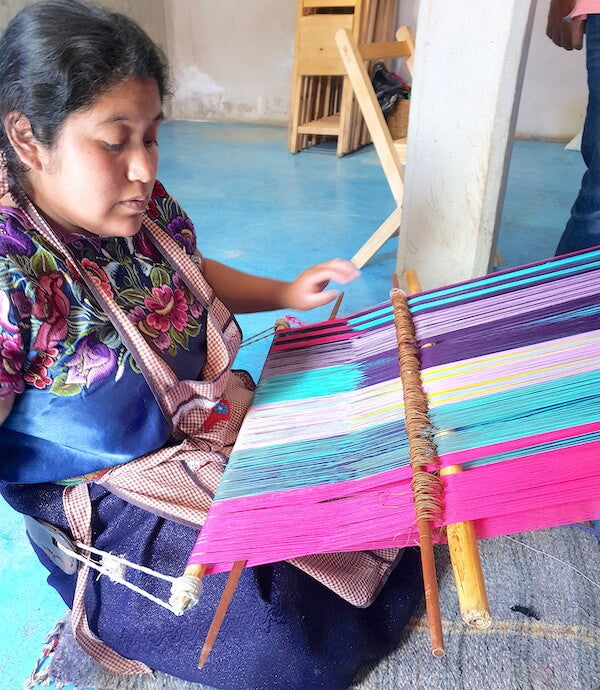
She dressed up for the occasion to welcome us into her home and show how she makes each of her pieces. She was wearing one of her traditional dresses from the area which are always full of embroidered flowers from the region.
She described the steps she takes for preparing each thread of color, the counting, the organization of the threads by color in the wrap (see picture below) and how to get the loom organized. But once she started weaving, our mouths dropped to see how fast she was moving the threads from one side to the other, and going up and down with her body to firmly pack the threads. It was like watching a machine with human hands.
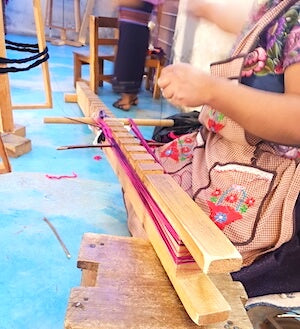
I asked if that was something she learned from her mother, but she explained that she learnt it out of her own passion. Her parents had a bread business, and her destiny was to continue baking bread. But instead, she decided to learn a century old tradition from her community and explore the world of textiles. She started practicing and realized she could learn fast and that her work was done with good quality. So, one day she decided to stop at Táabals shop to ask for a job. From that day on she became part of their team, and started learning new techniques, better quality materials, and the combinations of colors.
So how does buying a Shawl made by Petrona, impacts her life?
Here are the facts:- She is employed by the brand Táabal, and they make sure that she can get projects to work on all year round.
- If there are seasons where there is no production work, she gets a minimum monthly wage guarantee.
- Design concepts and material are delivered to and picked up from her home.
- She has the flexibility to take care of her two little girls and organize her time accordingly because she can work from home.
- She gets paid by the hour, and her hourly rate is determined by how efficient she is making pieces. Thus, Táabal pays their artisans according to their level of expertise, it wouldn't be fair to pay more to an artisan that takes longer hours to make the same piece as an artisan that takes half the time.
- She also gets trained in new textile techniques to learn new patterns of weaving textiles, an color combinations. Making it more rewarding for her to work.
- She can also make her own creations and directly sell to end costumers in her private time to generate more income.
How would it be working by herself instead of Táabal's team?
She would have to source materials, create the pieces, and go to the general markets to try to compete with a very saturated market. Everyone is doing the same patterns, same colors and styles. Therefore, with no differentiation, the price of her work is negotiated down by intermediaries who would buy and resell in other markets at a higher price. Also, during low seasons she would have to look for other sources of income, and have no public health coverage.
What about minimum salary in Mexico?
For an 8 hour day of work the minimum salary is 102.68 MXN around 5 CHF (4.50 EUR), which makes an hourly rate of 0.62 CHF. This barely enough, considering that the price for the basket of goods is around 1,632 MXN (83 CHF) per month. Petrona's hourly rate allows her to live well, send her kids to school, and bring food to the table.
The impact goes further:
Buying Petrona's pieces also impacts a small entrepreneural business like Táabal, who is making a real impact in their community. Up to this year, they are directly working with 120 artisans from different communities in the state of Chiapas, one of the poorest states in Mexico. Their contemporary vision and collaboration with the artisans is helping improve the standards of living of artisans like Petrona.
Have more questions? Send us an email to: info@32estados.com or write your comment below.
